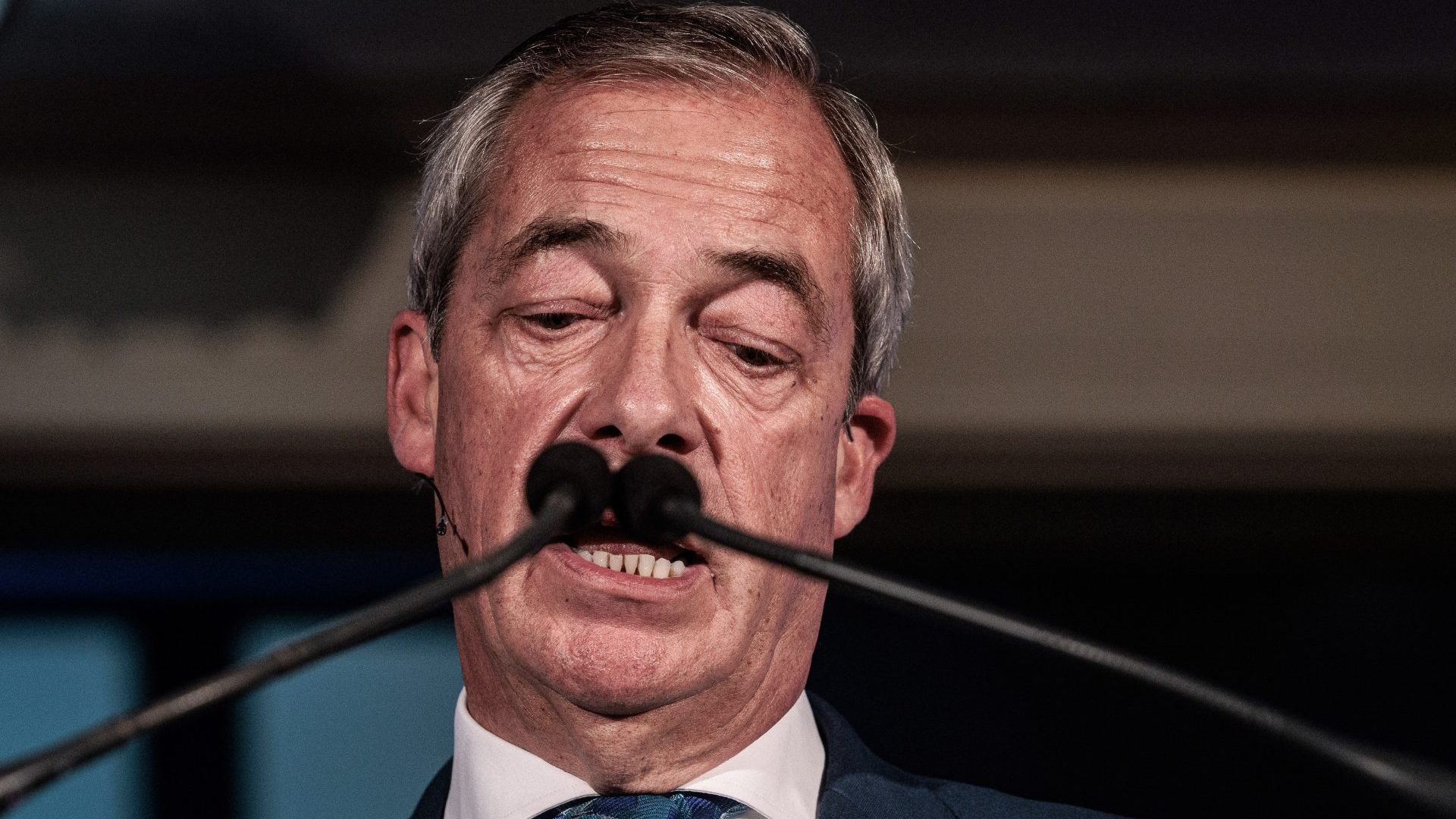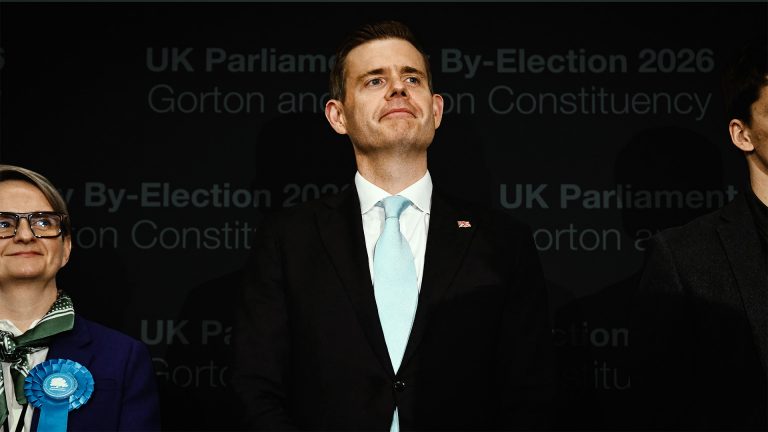Could Nigel Farage’s schooldays prove a significant impediment to his hopes of entering Downing Street? The Reform UK leader often speaks warmly of his time at Dulwich College, often attending alumni events, but several contemporaries remember Farage’s formative years less fondly.
“Farage would sidle up to me and growl: ‘Hitler was right’ or ‘gas them’”, says Peter Ettedgui, who recalls Farage calling other students “Paki” or “wog”. Farage has offered a curious cocktail of denials laced with carefully worded caveats that acknowledge offensive behaviour, while complaining that being asked about things that happened half a century ago are proof of an anti-Farage conspiracy.
The allegations are not new, though twenty former pupils have now given eye-witness accounts of Farage’s conduct. In 2013, the journalist Michael Crick uncovered a letter from a teacher to the school head, in which the teacher had written that Farage was “a fascist, but that was no reason why he would not make a good prefect.”
Farage’s recollection is that he was a Powellite, not an advocate of further right movements, but that he went further in order to “wind up” his teachers. It is unusual to see “Enoch was right” pitched as proof of mainstream moderation by a 21st century politician.
Farage’s memories and mitigations have often boosted the credibility of allegations against him. “I did say things that would offend deeply… you can define name-calling in all kinds of different ways,” he said in a 2014 BBC radio Kent interview.
“Terms of abuse thrown around between fifteen-year-old boys were limitless; there were no boundaries,” Farage wrote to Michael Crick in 2021, telling him that “red-haired boys fared especially badly”. Would anybody believe that Jewish, Asian and black students were exempt?
Farage now calls this “banter in a playground” – the standard defence of casual racism in the 1980s and early 1990s before social norms shifted more strongly against racial slurs. Farage’s contemporaries believe he was an outlier in that time too.
If Nigel Farage was a teenage bully who used racist slurs at school, how much should that matter today? It will be no surprise that views of the relevance and gravity of Farage’s teenage racism break down along partisan lines. The 61-year-old politician cannot change the actions of his 16-year-old self, though it is in his power to decide how to account for it today, both to those directly affected and to the wider public.
Suggested Reading


Farage and the patriots who hate Britain
So the question of if, how and when Farage grew out of his overt schoolboy racism may matter. Ukip’s founder Alan Sked has alleged that Nigel Farage was habitually using the n-word in 1997, telling him that the “nig nogs” would never vote for a Eurosceptic party. But this time Farage was a thirtysomething city trader and emerging politician, not a 13-year-old schoolboy.
The key contested question is whether Farage has changed substantively or whether his rejection of racism is only skin deep. Those most critical of Reform will see a direct link to Farage’s arguments and policies today. The Sun newspaper called him out for racism a decade ago, over his declaration that nobody would want a Romanian neighbour. He moved right this summer on mass deportations, threatening to deport those with permanent status.
But there is a substantive case that Farage did change. He has seen the strategic necessity of maintaining a clear boundary with the far right. Indeed, Farage himself declared that Ukip had become “the new BNP” once his successor Gerard Batten was marching with Tommy Robinson.
Farage’s continued opposition to Tommy Robinson was one of the causes of the breakdown of his relationship with radicalised billionaire Elon Musk. In comparative terms, Farage can claim to be one of the more moderate populist leaders in Europe – compared to the German AfD or Geert Wilders in the Netherlands.
So Reform is a qualitatively different kind of party to the BNP. It makes sense to challenge Reform to expel racist candidates; it would be a waste of breath with the BNP. Farage has seized on projecting ethnic minority participation in his political parties as a reputational shield.
“Let this picture of me on this stage be Ukip’s Clause Four moment,” he said in 2013, surrounded by several dozen black and Asian candidates. “I don’t care what you call us, but from this moment on, please do not call us a racist party again,” he added back then. Yet even as the party label has changed, Farage has failed to settle this question, given the recurring damage to his parties from the selection of overt racists – though the party will expel egregious racists, if others expose them.
Reform projects itself as a professionalised upgrade on the old Ukip. Up to a third of the public are tempted to vote for the party. Yet research for British Future in July 2024 found Reform UK’s public reputation on racism to be worse than Ukip’s back in 2015.
The most recent research from YouGov finds a plurality of the white British majority group seeing Reform as a racist party with racist policies, by a margin of around 45% to 34%. Ethnic minority perceptions are much tougher: only one in six trust Farage or Reform, while seven in ten consider the party to be racist. That margin is a significant failure on a foundational test.
But a third of the public acquitting Reform offers a narrow path to victory. Reform has, to date, tended to ignore its reputation with those unlikely to vote for it. But a party cannot win on a third of the vote – as Keir Starmer did – without the indifference of others. If Reform does not detoxify its reputation, that could drive the kind of “Anybody But Reform” dynamic which saw the party snatch defeat from the jaws of victory in the recent Caerphilly by-election in Wales.
Nigel Farage will decide whether he needs to give a more credible account of his younger self. But the real question in 2025 about Reform UK and racism is not about the leader’s schooldays. It is whether a party that aspires to govern modern Britain accepts that it must earn the trust of the median ethnic minority citizen – not necessarily their vote, but their confidence that its motives and instincts are fair and fit for the multi-ethnic country we have become. That is the key racism test that Reform UK is currently failing to pass.










